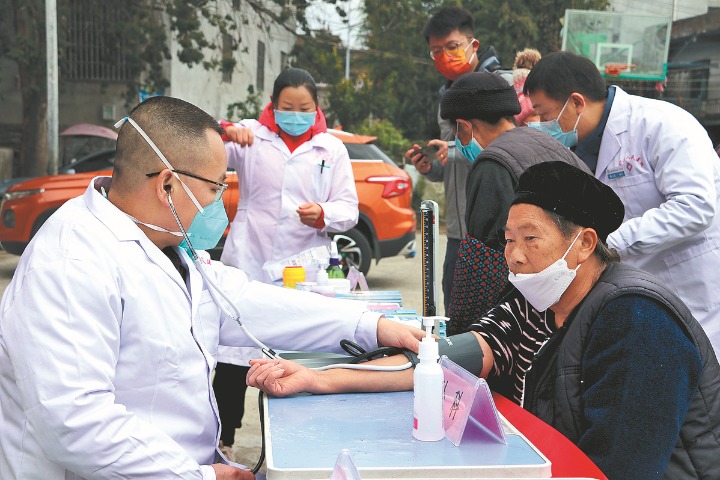What roles did sharing economy play in fighting COVID-19?
It is important to note that the information provided in this Series is intended for your general knowledge only and is not a substitute for professional medical advice or treatment.

Sharing economy refers to the sum of economic activities that make use of the internet and other modern information technologies, integrate massive and decentralized resources, and satisfy diversified demands. Its main feature is to share use right. Since the outbreak of COVID-19, China's traditional consumer market has suffered a major blow. However, consumers have also developed online shopping habits in the process. Many sharing economy platforms have kept innovating and developed quickly during the epidemic, playing important roles in fighting COVID-19 and ensuring people’s basic living needs.
First, sharing platforms for healthcare, education and life services meet people's needs of online consumption and living. Healthcare sharing platforms provide remote diagnosis, free medical suggestions and scientific popularization of diseases, satisfying the needs of many patients in areas with limited medical resources. According to statistics, as of February 3, the COVID-19 free clinic section on the WeDoctor platform had received more than 79 million visits. Education sharing platforms enable students to keep learning amid class suspension through increasing accessibility of online education systems, courseware and other resources. As of Feburary 10, Ali's home-schooling program had reached 50 million students across the country. Life service platforms guarantee people's daily life during the epidemic. The sales volume of JD, Missfresh and other platforms increased despite of the outbreak. New modes such as contactless delivery, pick-up store, community group purchase and unmanned vehicle delivery also greatly reduced the risk of exposure to infection.
Second, the combination of online platforms and offline enterprises alleviates the operating pressure of the latter and stabilizes employment. During the epidemic, many online platforms were undermanned because of surging orders, while many employees of offline merchants were idle due to suspension of business. To solve the problem and stabilize employment, many supermarkets and e-commerce platforms "borrowed" employees from enterprises in catering, hotels, cinemas and other industries. Fresh e-commerce platforms such as Hema Fresh and 7FRESH have carried out "employee sharing" with catering enterprises such as Xibei and Yunhaiyao. A large number of catering employees have transferred to fresh e-commerce platforms to conduct goods allocation, picking and other work.
Third, transportation platforms provide services for special groups. During the epidemic, car-hailing platforms organize fleets to ensure the necessary commuting of special groups. Didi has set up fleets for medical staff in 15 cities, serving a total of 37,987 medical workers. Shouqi Limousine & Chauffeur has gathered 502 drivers in Wuhan to set up an emergency "community fleet" to provide emergency travel services for Wuhan community residents. Bicycle-sharing has also become an important means of transportation in the worst-affected areas, especially under strict traffic control. Shared bikes facilitate necessary travel of medical workers, community workers, urban management and public security officers and volunteers. According to statistics, from January 23 to March 12, Meituan had provided about 2.3 million rides in Wuhan, accounting for more than half of the trips during the epidemic period.
References:
[1] 《中国共享经济发展报告(2020)》,http://www.logclub.com/articleInfo/MTg4OTAtYzc3OTg2ZjA=
[2] 人民日报:“共享用工”,未来可期,http://js.people.com.cn/GB/n2/2020/0330/c360298-33913216.html
[3]中国经济网:首汽约车落实多项举措全力抗击疫情、保障返工人员通勤,https://baijiahao.baidu.com/s?id=1658413394882746974&wfr=spider&for=pc
[4] 新华网客户端:滴滴:医护车队告一段落 向更广泛社会公益提供服务,https://baijiahao.baidu.com/s?id=1662943157038894653&wfr=spider&for=pc
[5] 央广网:武汉共享单车战疫报告发布:共享单车分担过半出行,https://www.sohu.com/a/383425427_362042
Author:Chen Zheng, Center for International Knowledge on Development
Please feel free to contact us by sending your questions to question@chinadaily.com.cn or commenting on China Daily app. We will ask experts to answer them.














